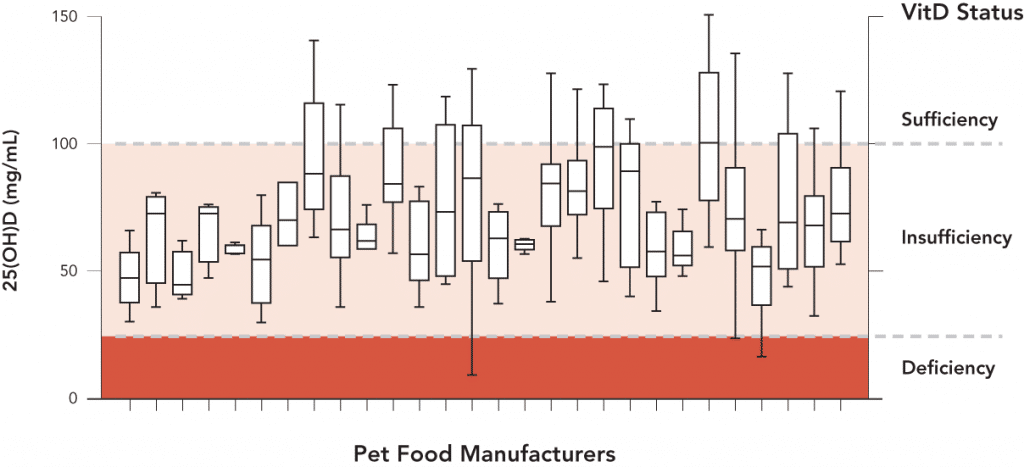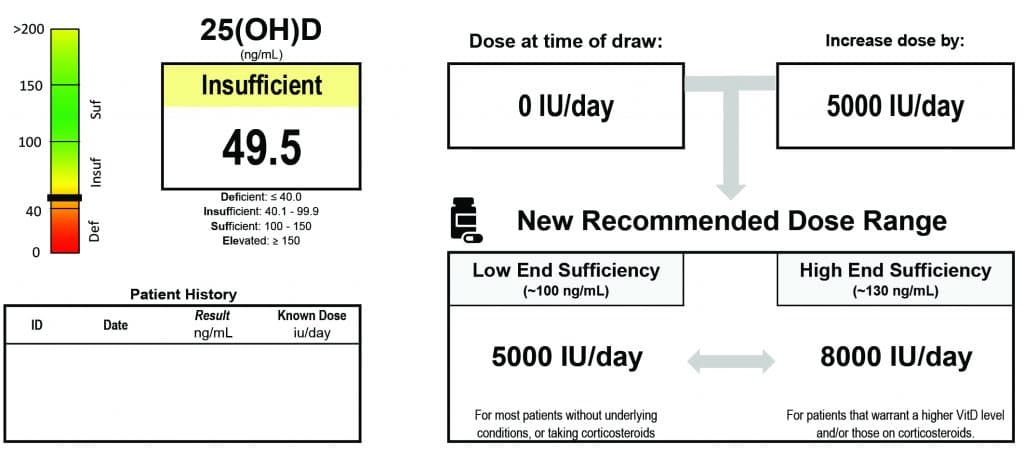This one-of-a-kind testing solution does what a simple blood test cannot – ensure that your patient’s unique nutritional needs are met.
The health of dogs and cats starts with the quality of food they eat. As this becomes general knowledge, more vets are striving to educate their clients on the importance of diet for general wellness, and for the management of acute diseases. Unfortunately, countless commercial diets are still inadequate in many of the essential vitamins and minerals required for companion animals to thrive. While regular blood tests are a great way to keep on top of your patients’ nutritional needs, there’s a new testing solution available that takes this a step further.
The vitamin D example
Vitamin D is a perfect example of a nutrient that many animals lack. As one of the essential vitamins, it’s only obtained through the cat or dog’s diet. Some diets are certainly better than others, but in general are cats and dogs getting enough?
A study out of Tufts University aimed to determine how food source and supplements affect 25(OH)D concentrations, the storage form of vitD. Serum was collected from clinically healthy dogs, and pet parents were surveyed about food source and supplements. Serum 25(OH)D concentration was measured using a quantitative chemiluminescent assay (LIASON, DiaSorin, Stillwater, MN). Results revealed that a wide range of pet food brands were insufficient in providing adequate Vitamin D.

The case for testing
Although AAFCO standards indicate and regulate Vitamin D3 added to food, the primary source of Vitamin D comes from the protein source and that can vary widely. Testing is required to see what the actual biologically available Vitamin D concentration is in a particular pet. As the study above demonstrates, many pets are found to be insufficient.
The body is a finely tuned machine with vitamins and hormones existing in a delicate balance. Too little and problems can develop. Too much and other problems can arise. In order to help your clients manage their animals’ diets and essential vitamin levels, testing is required to determine proper dosing. Since every animal is different, there is no “one-size-fits-all” approach to supplementing essential vitamins.
A simple blood test can tell you the status of any particular nutrient in the body. But an innovative new service from VDI Labs takes this one step further by offering a secondary value: patient-specific dosing guidelines. Dosing guidelines are unique to the patient and are intended to aid in the process of recommending supplements to clients.
Testing with VDI Laboratory
Known as the “Test & Treat Solution”, this low-cost, convenient practice for managing essential vitamin levels makes meeting your patients’ nutritional needs – and correcting nutritional deficiencies – easier than ever. Once levels are determined via blood tests, the lab report goes on to provide patient specific dosing requirements and then converts those to a recommended supplement that has known efficacy. VDI Lab offers test and treat solutions for three critical essential vitamins: Vitamin D, B12 (Cobalamin), and magnesium.


To learn more, visit vdilab.com.







